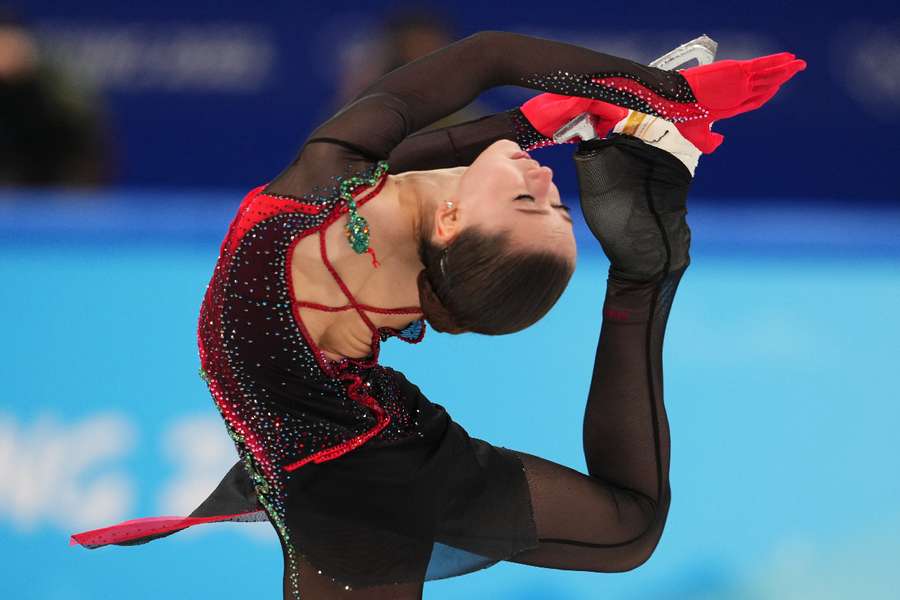Russian figure skater Valieva banned for doping, ROC loses Olympic gold

In its long-awaited ruling, the highest court in sport found Valieva guilty of committing an anti-doping rule violation that rattled the Beijing Olympics and frustrated competitors who are still waiting for their medals from the event to be allocated.
"Kamila Valieva is found to have committed an anti-doping rule violation and sanctioned with a four-year period of ineligibility commencing on 25 December 2021," the Court of Arbitration for Sport (CAS) said.
The court added that all of Valieva's competitive results achieved since that date are voided, including the gold medal she helped ROC win in the team event at the 2022 Games.
The World Anti-Doping Agency (WADA), one of the parties that brought the case to CAS, welcomed the decision, describing it as a victory for fair sport.
"I think for WADA and for clean sport, it means that after following due process a fair result to all athletes has been rendered by the Court of Arbitration for Sport," WADA director general Olivier Niggli told Reuters.
"Even though the process might be a bit tortuous, the end result has been and is to the satisfaction of the clean athletes.
"It's been a long, long case and we acknowledge the fact that it took a long time to get resolved.
"But we had to appeal this case from a decision initially that basically cleared the athlete of any fault.
"CAS has agreed with our position, which we are pleased with."
Russian athletes already faced scrutiny at the 2022 Games over separate doping sanctions and competed in Beijing as ROC athletes, without their flag or national anthem as punishment for tampering with laboratory data that could have identified drug cheats.
Russia denied running a state-sponsored doping programme.
In comments carried by RIA news agency, Kremlin spokesperson Dmitry Peskov dismissed Monday's ruling as politically motivated.
'WAR DECLARED' ON RUSSIAN SPORT, ROC SAYS
The ROC said in a statement: "In effect, war has been declared on Russian sport and, as we can see, no holds are barred."
The committee said the CAS "had long since ceased" to be worthy of objectivity and impartiality.
The CAS panel determined there had been no scope for Valieva, who was 15 at the time of the offence, to be treated with more leniency than an adult found to have committed an anti-doping rule violation.
Valieva tested positive for the banned substance trimetazidine, which prevents angina, at the Russian national championships in December 2021.
Her team has said the positive test could have been due to a mix-up with her grandfather's heart medication.
The result of the positive doping test was only made known a day after Valieva helped the ROC win gold in the team event in Beijing in February 2022.
"While any sense of true justice has been denied by the unbelievable and unnecessary delay in this case, we are incredibly pleased for clean athletes that this sad saga has finally come to an end," said Travis Tygart, CEO of the United States Anti-Doping Agency (USADA).
"At the same time, our hearts hurt for yet another Russian athlete who the system has failed."
Valieva, who became the first woman to land a quadruple jump at the Olympics during the team event, had been favourite to win the singles gold but missed out on an individual medal after dropping to fourth place with an error-laden free skate.
Her suspension will be lifted in time for the 2026 Milano-Cortina Winter Games.
MEDAL ALLOCATION
During the Beijing Games, the International Olympic Committee (IOC) decided no medals for the team figure skating event would be presented until Valieva's case had been resolved.
The United States took silver behind the Russians, with Japan getting the bronze and Canada placing fourth.
American figure skaters have repeatedly expressed their frustration over the delay in receiving the team medals, with Vincent Zhou saying the global anti-doping system was failing athletes.
"Today is a day we have been eagerly awaiting for two years, as it is a significant win not only for Team USA athletes but also for athletes worldwide who practice fair play and advocate for clean sport," said Sarah Hirshland, chief executive officer of the United States Olympic and Paralympic Committee.
"We now anticipate the day when we can wholeheartedly celebrate these athletes, along with their peers from around the world."
The Canadian Olympic Committee (COC) and Skate Canada applauded both the ruling and the athletes for their dedication and perseverance over the protracted battle.
"We believe today's decision is an important milestone in this years-long case," said the COC in a statement.
"We once again congratulate the affected Team Canada athletes for their incredible performances two years ago, and their enduring strength of character during this long process."
